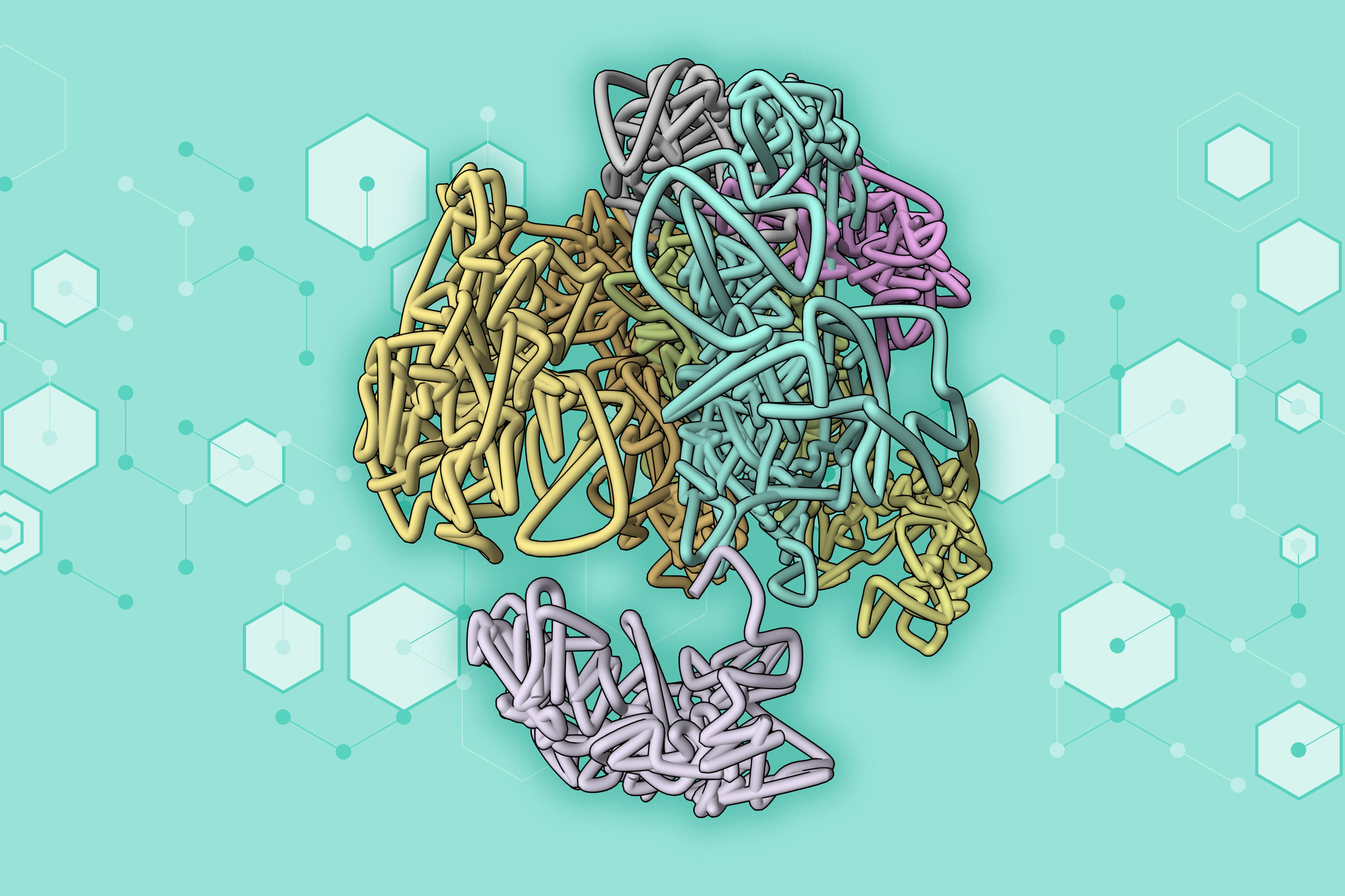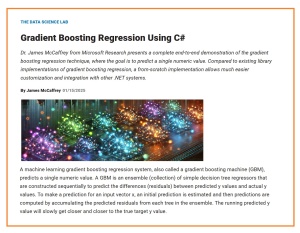MIT chemists use generative AI to predict 3D genome structures, revolutionizing analysis speed and cell-specific gene expression research. Their model, ChromoGen, can quickly analyze DNA sequences to determine chromatin structures in single cells, opening new research opportunities.
Article discusses Gradient Boosting Regression Using C# in Microsoft Visual Studio Magazine, presenting a demo of a simple version compared to XGBoost, LightGBM, and CatBoost. The demo showcases the step-by-step process of predicting values with gradient boosting regression.
Data-centric AI can create efficient models; using just 10% of data achieved over 98% accuracy in MNIST experiments. Pruning with "furthest-from-centroid" selection strategy improved model accuracy by selecting unique, diverse examples.
SoftBank in talks to invest up to $25bn in OpenAI, becoming largest financial backer of ChatGPT startup. Potential $15-25bn deal with San Francisco-based company reported by Financial Times.
China's DeepSeek challenges US tech giants with premium AI at a fraction of the cost. A potential Sputnik moment in the AI race, raising questions about strategy and investment.
Aetion leverages real-world data to uncover hidden insights with Smart Subgroups and generative AI, transforming patient journeys into evidence. Aetion's use of Amazon Bedrock and Anthropic's Claude 3 LLMs enables users to interact with Smart Subgroups using natural language queries, accelerating hypothesis generation and evidence creation.
Secret sharing ensures secure distribution of sensitive data among parties. Shamir’s algorithm allows parties to pool data without revealing individual values.
Apple beats Q1 earnings expectations with 4% revenue increase to $124.30bn. Shares surge 8% after CEO Tim Cook hints at continued growth in next quarter.
New GeForce RTX 5090 & 5080 GPUs with Blackwell architecture power AI content creation. FLUX models require less VRAM & generate images faster.
Bandit algorithm vs A/B test: When A/B tests fail due to multiple variants or one-off campaigns, bandit algorithms offer a more efficient solution by focusing budget on the best performing ad variant in real-time. Bandit algorithms maximize rewards by serving the ad variant with the highest KPI, making them ideal for campaigns with numerous treatments or special events.
Authors Guild launches Human Authored portal for members to confirm books are not AI-generated, with logo for proof on covers.
Generative AI transforms organizations with innovative applications for enhanced customer experiences. Operating models like decentralized, centralized, and federated drive adoption and governance of generative AI technologies.
MIT researchers are developing "artificial adversarial intelligence" to mimic hackers and strengthen cybersecurity defenses against ransomware and data theft. Una-May O'Reilly from MIT CSAIL explains how AI replicates attackers' tactics to protect against cyber threats.
Vectors are the hidden force behind AI, offering a dynamic view of relationships and patterns in data. Understanding vector thinking is crucial for business leaders to make informed decisions and stay ahead in the digital age.
Researchers from MIT and others discovered the indoor training effect: AI agents trained in less noisy environments outperformed those trained in noisy ones, challenging conventional wisdom. The study, presented at the AAAI Conference, suggests new approaches to training AI agents for better performance.















